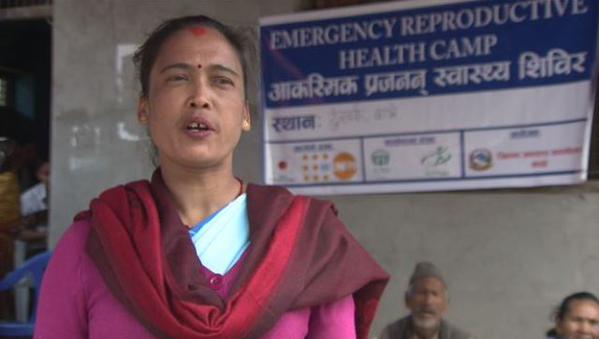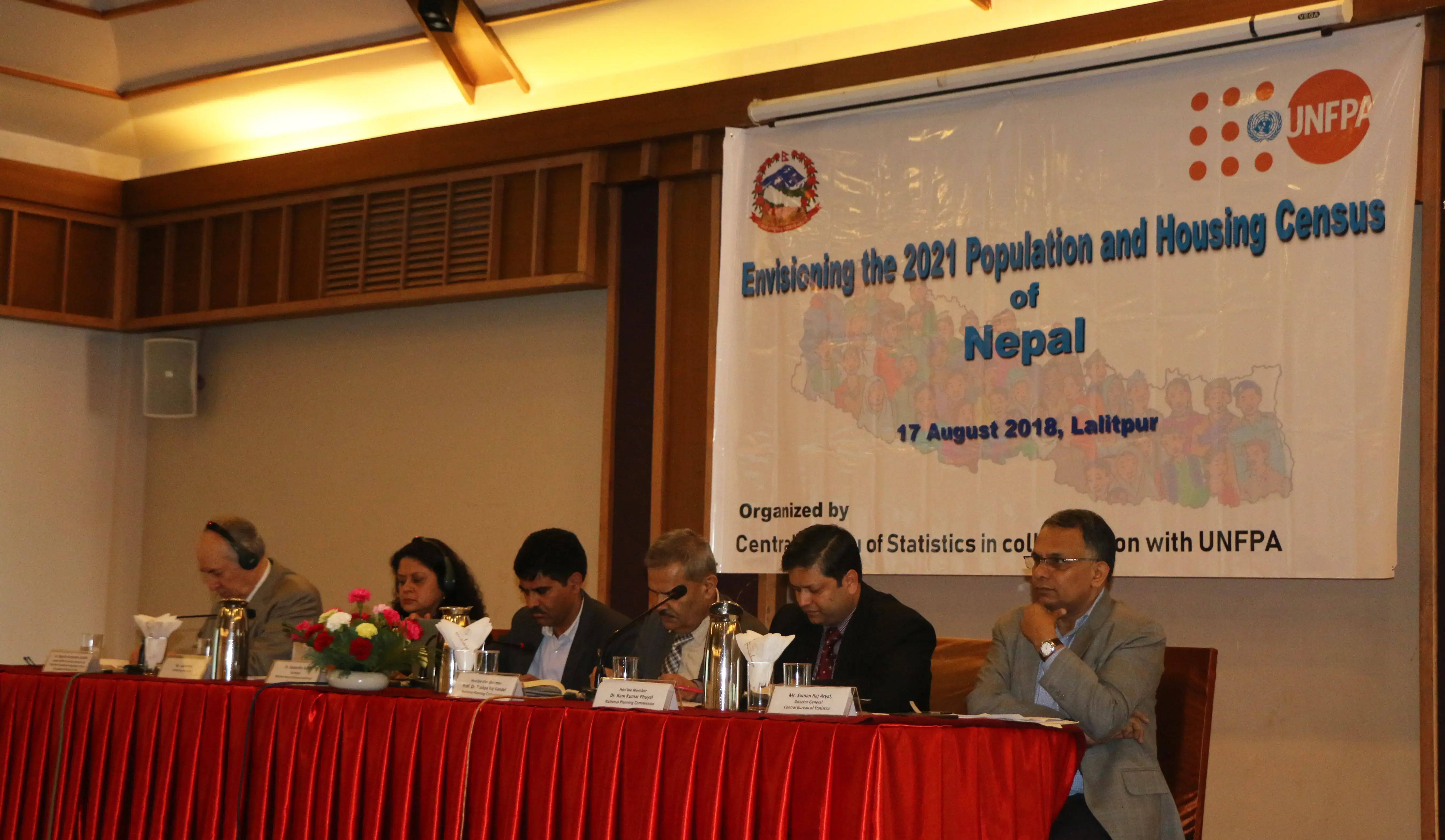When the earthquake struck Nepal on April 25, UNFPA, the United Nations Population Fund, immediately reached out to the Ministry of Health and Population as well as partners like Family Planning Association of Nepal, Adventist Development and Relief Agency, and CARE Nepal to provide life-saving reproductive health services to women and girls of reproductive age affected by the natural disaster. This is part of the Dignity First campaign launched by the Government and the UN Population Fund, which encompasses UNFPA's lifesaving interventions and ways to restore the dignity of earthquake-affected women into a movement.
Given the extent of the health facilities damaged or destroyed, partners agreed that a key intervention would be to carry our emergency reproductive health (RH) mobile camps, as a way to provide critical sexual and reproductive health services (SRH) along with information and services on gender-based violence (GBV) targeting primarily women and girls of reproductive age living in remote areas.
Mobile RH camps a concept not new to Nepal especially during the conflict period - are equipped with male and female doctors, skilled birth attendants, youth health educators, health assistants and Auxiliary Health Workers carrying out lab services (including for STI/HIV services) and psycho-social counselors, youth coordinators and youth volunteers. The emergency RH camps provide antenatal, delivery and postpartum services including basic emergency obstetric and newborn care and family planning.
They also include general health check-ups, a separate adolescent friendly corner with messages, information and services specific for that age group, health education, psychosocial counseling, lab facilities referral services as well as free of cost drug distribution. UNFPA was able to start RH camps in the earthquake-affected districts from 30 April through FPAN, with an average of 1-2 camps carried out almost daily. Another such mobile camp was carried out by ADRA from 22-24 May in Dhunkharka VDC, Kavre district. A total of 592 patients received medical advice, treatment, and overall education on RH and basic hygiene in Dhunkharka.
Many women were counseled and referred to other services as per need. More such camps will follow in the earthquake-affected districts. In addition, a total 87 dignity kits (containing clothes, hygiene items, sanitary pads and a flashlight) were distributed to pregnant and lactating mothers. Funded by the Government of Japan, the RH camp was well coordinated with local health authorities, NGO partners as well as with UNFPA.

A local Female Health Community Health Volunteer (FCHVs), Aapsara Nepali, says the services offered in the camp were much needed. "It's a huge relief to the pregnant women and new mothers as many of them are still living in temporary shelters without the care they need at this juncture," she says.
The ongoing collaboration between the District Health Offices and UNFPA in the earthquake-affected districts has been instrumental in mobilizing FCHVs like Nepali, who are frontline heroes of women's health across Nepal, acting as a ‘bridge' between health facilities and mothers' groups in the community. "The reproductive health kits that were brought to this emergency mobile camp are vital for safe pregnancy, delivery and family planning," says Nepali.
Shuvadra Acharya, 28, who gave birth just one day before the earthquake, had a narrow escape. "When I was inside my house with my baby, the earth beneath started shaking and the wall of my house collapsed immediately. Luckily, I escaped unscathed. I trembled with fear for days," says Acharya, who also received UNFPA's trademark dignity kits after she had a checkup at the camp. "The times like this is a nightmare for lactating mothers. And these warm clothes that I received today provide warmth through nights as we are living outside our home."
Like Acharya, Rama Kumari Shrestha (22) is among the quake-affected service-seekers who learned at least three major danger signs as well as when and where to seek care during pregnancy. "In addition to the aid we receive, every piece of information related to our health is helpful," says Shrestha who also received the dignity kits.
Another highlight of camp was an adolescent-friendly corner that offered counselling on SRH, sexual abuse and sexuality as well as STI (including HIV prevention), testing and counselling services. All these are associated with the dignity of adolescent girls. "Be it adolescent girls, lactating women or new mothers, their dignity can be restored when they have an unhindered access to the services they need the most in times of humanitarian crisis," says Giulia Vallese, UNFPA Representative in Nepal. "Our efforts to that effect have been supplemented by financial support from the Governments of Japan, Australia and Switzerland as well as the UK."
One of UNFPA Nepal's holistic approaches to reach the unreached pregnant women, lactating mothers and women of reproductive age and help them regain their dignity is the Dignity First campaign. With the focus that has already shifted from search and rescue to relief and rehabilitation, advocating the needs of earthquake-displaced women and girls is the centerpiece of the campaign that, in the first phase, targets the most affected districts.




